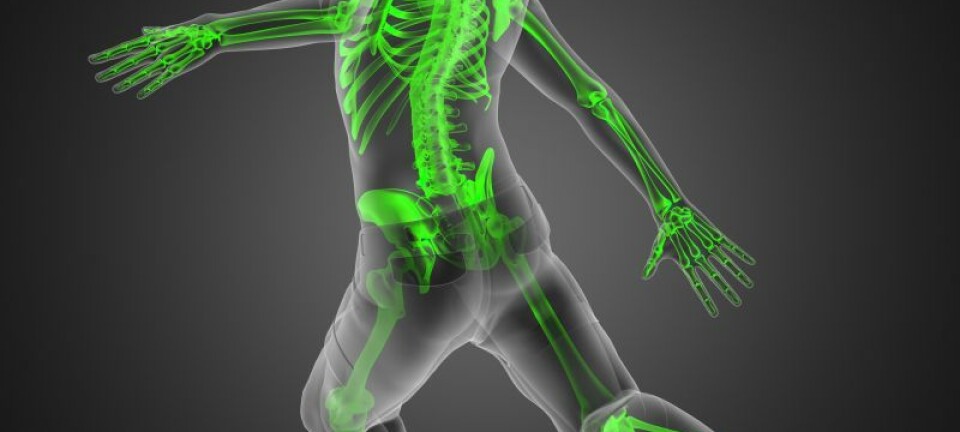
Fitness addicts get withdrawal symptoms just like alcoholics
People addicted to exercise experience withdrawal symptoms just like alcoholics and other addicts do, a new study reveals.
Some people become addicted to alcohol and gambling, others become addicted to hard physical exercise.
In the first Danish study on fitness addiction, Ph.D. student Mia Beck Lichtenstein from the University of Southern Denmark has examined what happens when people who exercise regularly at an ordinary level start to obsess about working out and allow their training to take control over their lives.
Almost 600 people participated in the study and 5.8 per cent of them could be defined as fitness addicts.
“If someone who’s addicted to physical exercise is prevented from training, that person will experience withdrawal symptoms like restlessness, frustration and guilt,” says Lichtenstein. “It’s comparable to alcoholism, where withdrawal symptoms play an incredibly large part in the addict’s social life, family life and working life.”
When exercise becomes the meaning of life
To study the phenomenon of fitness addiction, Lichtenstein asked 588 active sports practitioners to answer a questionnaire which she then scored individually. Thirty-four of the respondents got a very high score and could be classified as fitness addicts.
According to Lichtenstein there are several different symptoms of fitness addiction:
-
Exercise is perceived as the most important part of life
-
Exercise causes conflicts with family and friends
-
Although the addict increases the volume of exercise, he or she is never quite content
- The addict very often exercises daily, or even several times a day
“The fitness addicts use exercise to regulate their mood, so if they are having a bad day they exercise, and exercise becomes the answer to everything,” she says.
Addicts ambivalent about their addiction
Lichtenstein spoke with fitness addicts who were aware that they have a problem. However, by and large they all felt very ambivalent about their addiction because the exercise made them feel both good and bad at the same time:
“Exercise is the answer to all things bad. It has always been like that. I thought that I had control over my exercising, but I did not, and that is why I am injured today. Being injured is a nightmare, because my mobility is diminished,” says ‘Kent’, one of the people Mia Beck Lichtenstein interviewed for her Ph.D. thesis.
Where alcoholics are controlled by their booze -- an external element -- it’s the fitness addicts’ own activity that makes them addicted, says Lichtenstein. In that sense it’s comparable to pathological gambling and sex addiction.
Workouts affect others
Similarly to other addictions, the consequences of fitness addiction are not limited to the addict. They also affect their surroundings.
“The fitness addicts are competitive perfectionists so they work out in spite of illness and injuries. But this comes at a price,” says Lichtenstein. “Some women don’t have their periods for several years and it can be difficult to manage family life and a job when you feel the need to exercise for 20-30 hours a week,” says Lichtenstein.
She explains that the addiction can diminish human values:
“Everything is about the addict’s own life, so values like being a good friend and being caring, considerate and helpful are lost in the battle to break down boundaries to achieve more.”
Our body breaks down without rest
In addition to affecting the addict’s social life, the many hours spent at the fitness centre naturally also affect the body. A body in good shape can withstand a lot but there are limits, explains associate professor Kristian Overgaard of the Department of Public Health at Aarhus University.
“If exercise is to have a positive effect there needs to be a balance between the amounts of exercise and restitution,” he says. “The restitution period needed varies from person to person, and if it is not sufficient you lose more than you gain which can lead to tiredness and poor performance.”
The causes vary
But why do people become addicted to running on a treadmill until they drop or adding more and more pounds to the barbell?
There’s no single cause, says Lichtenstein. “It can be an escape from depression, a relationship crisis, the pursuit of recognition in life, or a diet that got out of hand.”
She explains that far from everyone realise they have a problem. But those who do should try to gradually reduce their amount of exercise -- or something as simple as taking a day off to regain energy. “Furthermore, it’s necessary to make sure that the joys exercise offered are replaced by others -- such as seeing friends,” says Lichtenstein.
Many exercise too little
Even though fitness addiction affects the addicts’ bodies as well their surroundings, it’s not something that needs to be diagnosed. Kristian Overgaard points out that very few people become addicted to exercise so it shouldn’t influence the overall message that exercise is healthy.
“There will of course always be some who overdo it,” he says. “Overall, there’s a lot to be gained by encouraging those who exercise too little but that shouldn’t keep us from talking about these problems.”
Lichtenstein agrees, although she thinks there should be a greater focus on fitness addiction:
“I welcome a more nuanced debate about exercising and hope that it can lead to more knowledge about excessive exercising and its prevention, because those who suffer from it are paying a high price,” she says. “As a general rule, exercise is healthy -- so one should not stop exercising altogether. But when does a healthy habit become an illness?”
Translated by: Iben Gøtzsche Thiele












